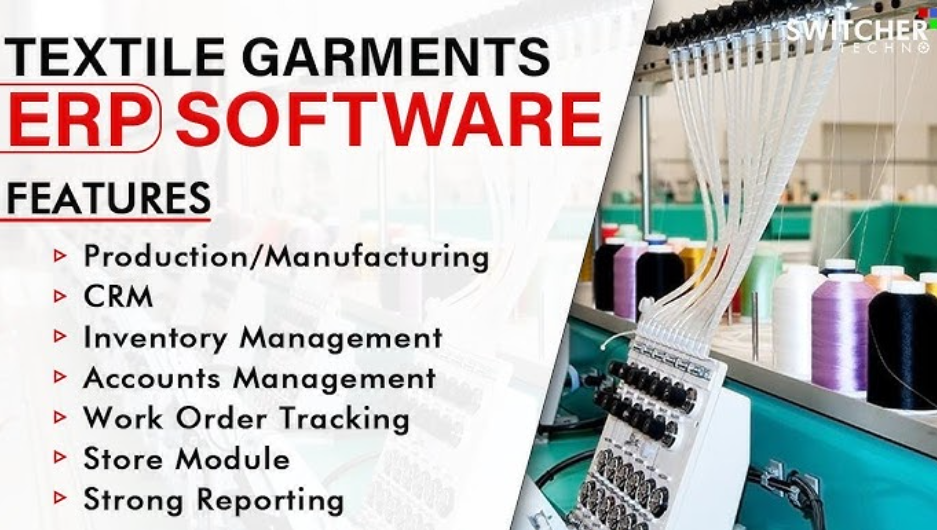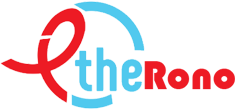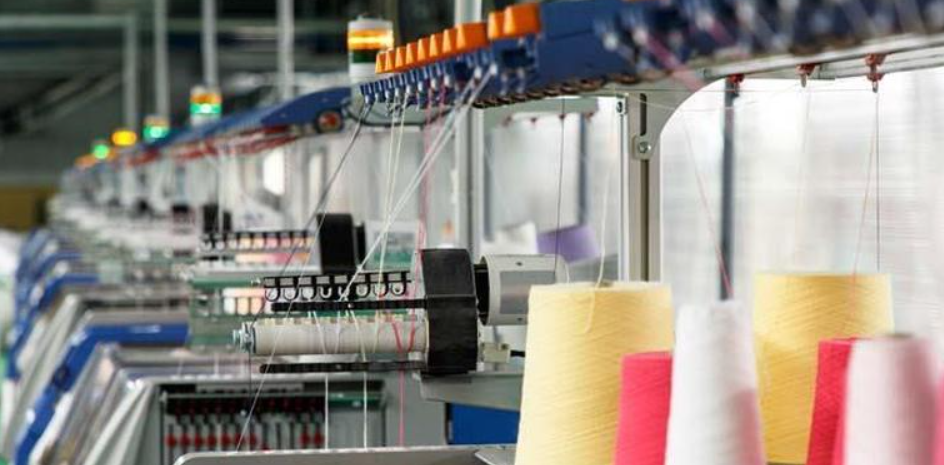The textile industry has undergone significant transformations in recent years, driven by technological advancements, changing consumer preferences, and global economic shifts. As we approach 2024, the need for efficient, integrated management systems in textile businesses has never been more critical. Enterprise Resource Planning (ERP) software has emerged as a vital tool for textile companies seeking to streamline operations, enhance productivity, and maintain competitiveness in a rapidly evolving market.
This article aims to explore the seven best ERP software solutions tailored for textile businesses in 2024. We will delve into their key features, strengths, and suitability for various segments of the textile industry. By understanding the unique capabilities of these ERP systems, textile businesses can make informed decisions about which solution best aligns with their specific needs and long-term goals.
Key Features Essential for Textile ERP Software

Before examining specific ERP solutions, it’s crucial to understand the key features that are particularly important for textile businesses. These features form the foundation of our evaluation criteria:
- Textile-Specific Functionality:
- Fabric and yarn inventory management
- Color and design management
- Pattern making and grading
- Cut order planning
- Production Planning and Scheduling:
- Capacity planning
- Machine scheduling
- Work order management
- Quality Control:
- Defect tracking
- Quality assurance processes
- Compliance management
- Supply Chain Management:
- Raw material procurement
- Supplier relationship management
- Global sourcing capabilities
- Inventory Management:
- Multi-location inventory tracking
- Lot and batch tracking
- Expiration date management
- Cost Management:
- Detailed costing for materials and processes
- Cost simulation for new products
- Profitability analysis
- Compliance and Traceability:
- Regulatory compliance features
- Sustainability tracking
- Product lifecycle management
- Integration Capabilities:
- E-commerce platform integration
- CAD/CAM system integration
- Third-party logistics integration
- Reporting and Analytics:
- Real-time dashboards
- Custom report generation
- Predictive analytics for demand forecasting
These features collectively enable textile businesses to manage their complex operations effectively, from design and production to distribution and customer service. The best ERP solutions for the textile industry in 2024 will excel in most, if not all, of these areas.
1. SAP S/4HANA for Fashion and Vertical Business

SAP S/4HANA for Fashion and Vertical Business stands out as a comprehensive ERP solution tailored for the textile and fashion industries. In 2024, this solution offers:
Key Features:
- Advanced materials management specific to textiles
- Integrated product lifecycle management
- Sophisticated demand planning and forecasting
- Comprehensive quality management system
- Global compliance and traceability features
Strengths:
- Robust scalability for large, global textile operations
- In-memory computing for real-time analytics and reporting
- Strong integration with other SAP modules and third-party applications
Considerations:
- May be complex for smaller textile businesses
- Requires significant investment in terms of cost and implementation time
SAP S/4HANA is particularly well-suited for large textile manufacturers and fashion brands with complex, global operations. Its comprehensive feature set and scalability make it a top choice for businesses looking to future-proof their ERP investment.
2. Oracle NetSuite for Apparel, Footwear, and Accessories
Oracle NetSuite offers a cloud-based ERP solution that has gained traction in the textile and apparel industry. Key aspects of NetSuite for textile businesses in 2024 include:
Key Features:
- Unified platform for ERP, CRM, and e-commerce
- Advanced inventory and warehouse management
- Integrated financial management and reporting
- Customizable workflows for textile-specific processes
- Multi-site and multi-currency support
Strengths:
- Cloud-based architecture for accessibility and scalability
- Strong omnichannel capabilities for retail-oriented textile businesses
- Flexible customization options to meet specific industry needs
Considerations:
- May require additional customization for complex manufacturing processes
- Pricing model can be complex, especially for smaller businesses
NetSuite is particularly appealing for textile businesses with a strong retail or e-commerce focus, offering robust capabilities for managing both back-end operations and customer-facing processes.
3. Infor CloudSuite Fashion
Infor CloudSuite Fashion is a specialized ERP solution designed specifically for the fashion and textile industries. In 2024, it offers:
Key Features:
- Comprehensive style, color, and size matrix management
- Advanced planning and scheduling for textile production
- Integrated PLM (Product Lifecycle Management) capabilities
- Robust supply chain management tools
- AI-driven demand forecasting and planning
Strengths:
- Deep industry-specific functionality out of the box
- Strong support for global operations and multi-company management
- User-friendly interface with role-based dashboards
Considerations:
- May be overkill for very small textile operations
- Integration with non-Infor systems may require additional effort
Infor CloudSuite Fashion is particularly well-suited for mid-size to large textile and apparel manufacturers, offering a balance of comprehensive functionality and industry-specific features.
4. Microsoft Dynamics 365 for Textile and Apparel
Microsoft Dynamics 365 has emerged as a strong contender in the textile ERP space, offering a flexible and integrated solution. Key aspects for textile businesses in 2024 include:
Key Features:
- Modular approach allowing businesses to select needed functionalities
- Strong production planning and scheduling capabilities
- Integrated CRM for managing customer relationships
- Power BI integration for advanced analytics and reporting
- IoT integration for production floor monitoring
Strengths:
- Familiar Microsoft interface, reducing the learning curve for many users
- Strong ecosystem of third-party add-ons and integrations
- Robust cloud capabilities with Azure integration
Considerations:
- May require industry-specific add-ons for comprehensive textile functionality
- Customization can be complex and may require specialized expertise
Microsoft Dynamics 365 is particularly appealing for textile businesses already invested in the Microsoft ecosystem, offering seamless integration with other Microsoft tools and services.
5. ApparelMagic
ApparelMagic is a specialized ERP solution designed exclusively for the apparel and textile industries. In 2024, it offers:
Key Features:
- Comprehensive style management with size and color matrices
- Integrated PLM and design management
- Advanced inventory control with multi-location support
- Specialized costing tools for textile and apparel production
- Built-in e-commerce and EDI capabilities
Strengths:
- Designed specifically for the unique needs of textile and apparel businesses
- User-friendly interface with industry-specific terminology
- Scalable solution suitable for small to mid-size businesses
Considerations:
- May lack some advanced features found in larger, general-purpose ERP systems
- Limited customization options compared to some larger ERP platforms
ApparelMagic is particularly well-suited for small to medium-sized textile and apparel businesses looking for an industry-specific solution without the complexity of larger ERP systems.
6. Aptean ERP for Fashion and Apparel
Aptean’s ERP solution for the fashion and apparel industry offers a robust set of features tailored for textile businesses. In 2024, key aspects include:
Key Features:
- Advanced material requirements planning (MRP) for textiles
- Comprehensive quality control and assurance features
- Integrated EDI capabilities for streamlined communication with partners
- Robust reporting and business intelligence tools
- Specialized features for managing seasonality and collections
Strengths:
- Strong focus on compliance and quality management
- Flexible deployment options (cloud, on-premises, or hybrid)
- Industry-specific functionality reducing the need for extensive customization
Considerations:
- May have a steeper learning curve for businesses new to ERP systems
- Less well-known brand compared to some larger ERP providers
Aptean’s ERP is particularly suitable for mid-size textile manufacturers and distributors looking for a solution with strong industry-specific features and flexible deployment options.
7. CGS BlueCherry ERP
CGS BlueCherry ERP is a comprehensive solution designed specifically for the fashion and textile industries. In 2024, it offers:
Key Features:
- End-to-end visibility from design to delivery
- Advanced planning and scheduling for textile production
- Integrated PLM and supply chain management
- Robust order management and fulfillment capabilities
- Specialized features for managing piece goods and roll goods
Strengths:
- Deep industry expertise reflected in textile-specific functionalities
- Strong support for global operations and multi-channel distribution
- Comprehensive suite of modules covering all aspects of textile business operations
Considerations:
- May be more complex than necessary for very small textile operations
- Implementation can be time-consuming due to the breadth of features
BlueCherry ERP is particularly well-suited for mid-size to large textile and apparel companies looking for a comprehensive, industry-specific solution that can handle complex operations and global supply chains.
Factors to Consider When Choosing an ERP for Textile Business
Selecting the right ERP software for a textile business is a critical decision that can significantly impact operational efficiency and competitiveness. When evaluating the options, consider the following factors:
- Industry-Specific Functionality:
- Ensure the ERP has features tailored to textile manufacturing and distribution
- Look for modules that address unique textile industry challenges (e.g., color management, roll tracking)
- Scalability:
- Choose a system that can grow with your business
- Consider future needs, such as expansion into new markets or product lines
- Integration Capabilities:
- Assess how well the ERP integrates with existing systems (e.g., CAD software, e-commerce platforms)
- Look for APIs and pre-built connectors to common textile industry tools
- User-Friendliness:
- Evaluate the interface and ease of use for employees at all levels
- Consider the availability of mobile access for on-the-go management
- Implementation and Support:
- Assess the vendor’s implementation methodology and timeline
- Evaluate the level of ongoing support and training provided
- Cost and ROI:
- Consider both upfront and ongoing costs (licensing, implementation, maintenance)
- Evaluate the potential return on investment based on expected efficiency gains
- Compliance and Reporting:
- Ensure the ERP can meet industry-specific regulatory requirements
- Assess the reporting and analytics capabilities for informed decision-making
- Cloud vs. On-Premises:
- Decide between cloud-based and on-premises deployment based on your IT infrastructure and data security needs
- Vendor Reputation and Longevity:
- Research the vendor’s track record in the textile industry
- Consider the long-term viability of the software and vendor support
By carefully evaluating these factors in the context of your specific business needs, you can select an ERP solution that will best support your textile business’s operations and growth objectives.
Conclusion: Embracing the Future of Textile ERP
As we look towards 2024, the textile industry continues to face challenges such as global competition, rapidly changing consumer preferences, and increasing pressure for sustainability. ERP software has become an indispensable tool for textile businesses seeking to navigate these challenges and maintain a competitive edge.
The seven ERP solutions highlighted in this article – SAP S/4HANA, Oracle NetSuite, Infor CloudSuite Fashion, Microsoft Dynamics 365, ApparelMagic, Aptean ERP, and CGS BlueCherry – represent some of the best options available for textile businesses in 2024. Each offers unique strengths and capabilities, catering to different segments of the textile industry, from small specialty manufacturers to large global enterprises.
When selecting an ERP system, it’s crucial to conduct a thorough assessment of your business needs, growth plans, and technological capabilities. Consider factors such as industry-specific functionality, scalability, integration capabilities, and total cost of ownership. Engage key stakeholders in the decision-making process and, if possible, take advantage of demos or trial periods to get hands-on experience with the systems you’re considering.
Remember that implementing an ERP system is not just a technological change but a business transformation. Success depends not only on choosing the right software but also on effective change management, user training, and ongoing optimization of processes.
As technology continues to evolve, we can expect ERP systems for the textile industry to incorporate more advanced features such as artificial intelligence for demand forecasting, Internet of Things (IoT) integration for real-time production monitoring, and enhanced sustainability tracking capabilities. Staying informed about these developments and regularly reassessing your ERP needs will be crucial for maintaining a competitive edge in the dynamic textile industry.
By leveraging the right ERP solution, textile businesses can streamline operations, enhance decision-making, and position themselves for success in an increasingly digital and competitive global market. The future of textile manufacturing and distribution lies in the intelligent application of technology, and a well-chosen ERP system is at the heart of this digital transformation.

